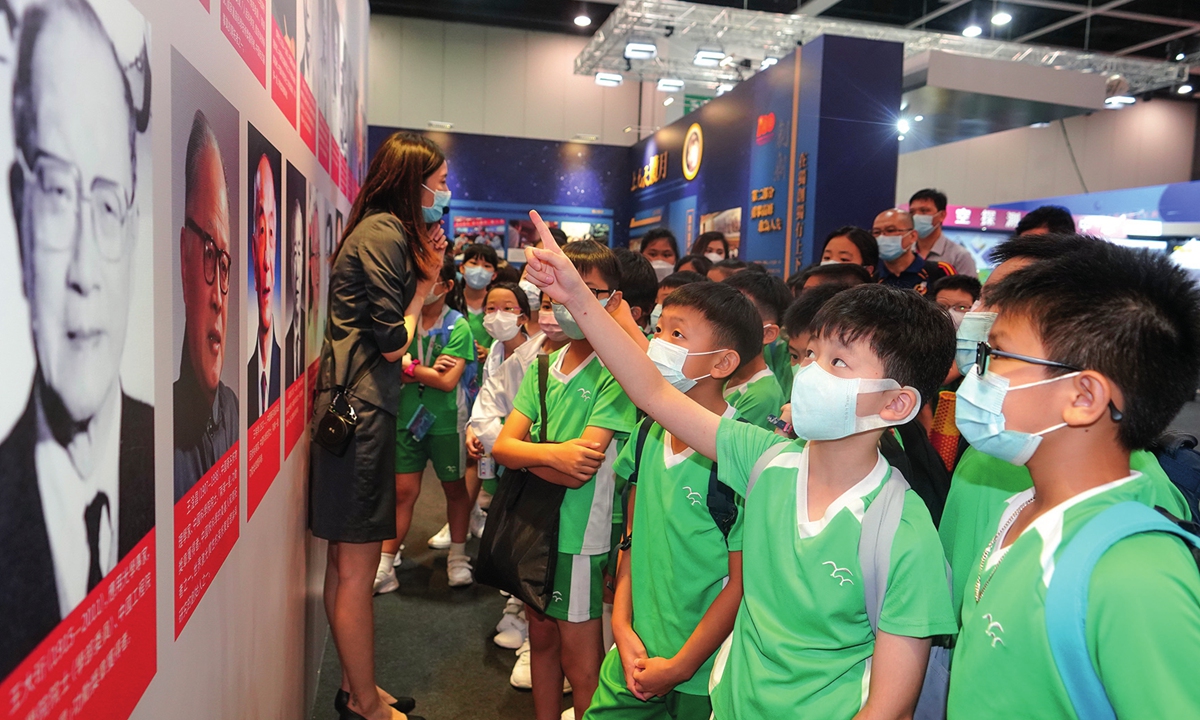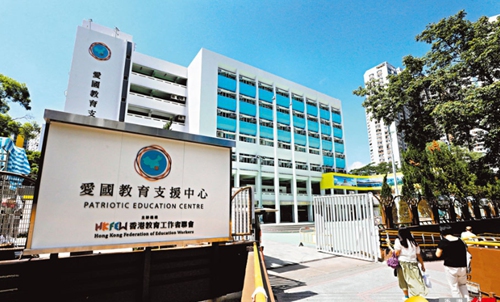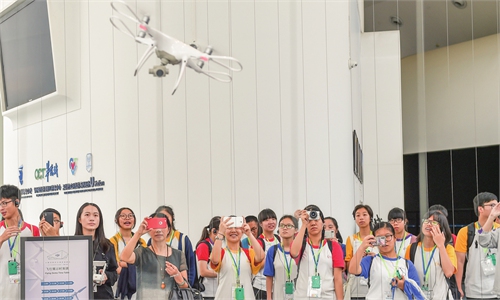
Primary school students visit an exhibition showcasing China's scientific achievements in the past 100 years?at the Hong Kong Convention and Exhibition Center on July 7, 2021. Photo: IC
The first field trip of Hong Kong secondary school students to the Chinese mainland, part of the compulsory Citizenship and Social Development subject for secondary school students, will set off on April 3 with about 250 students participating, the city's education secretary said.
So far, more than 6,000 students from 60 schools have signed up to participate in the study tour to the mainland in April, Secretary for Education of the Hong Kong Special Administrative Region (HKSAR) Christine Choi Yuk-lin said, the Hong Kong government news site reported Saturday.
In addition, about 16,000 students from more than 160 schools have signed up to depart in May. More than 200 schools have signed up to depart between June and August, Choi said.
She said the field trips will have one- to three-day itineraries that are primarily aligned with the school's curriculum, with visits and exchanges focused on connecting with learning, and activities designed to include more active thinking and interactive elements that are believed to be in-depth.
The trips are part of HKSAR's education reform, as the Citizenship and Social Development subject replaced the Liberal Studies as one of the four core subjects of senior secondary education from the 2021/22 school year, and it will be included in the Diploma of Secondary Education exams starting from 2024.
Due to previous travel restrictions during the COVID-19 pandemic, April 2023 will see the first Hong Kong students to participate in this expedition.
The field trips are organized and fully funded by the Hong Kong Education Bureau (EDB), and are compulsory for secondary four to six students in Hong Kong, according to the EDB's notice in July 2022, Hong Kong media outlet The Standard reported.
According to a notice sent by the EDB to secondary schools in February, there are 22 routes available for study tours. The themes of the trips include the history of the Communist Party of China, the development of China's innovative technology and the contribution of world-renowned revolutionist Sun Yat-sen.
Choi said that students can learn about the latest developments, culture and history of the country from field trips, which will be extremely helpful for learning, emphasizing that the purpose of the tour is not tourism and that it is appropriate to include elements of reflection and interaction in the design of activities for students.
Mainland field trips will become a very important part of the Citizenship and Social Development subject, Lawrence Tang Fei, vice-chairman of the Hong Kong Federation of Education Workers, told the Global Times.
Tang, who is a former principal of Hong Kong's Heung To Secondary School (Tseung Kwan O), said that in the past, although some Hong Kong schools would organize exchange and study trips to the mainland, they were voluntary and few in number, rather than universal. In addition, these study tours were not necessarily in line with the laws of education and did not always have educational significance.
The new field trips will fix the shortcomings of the former Liberal Studies subject, he said.
Tang said that previously, many Hong Kong students had not visited the mainland. When there were topics involving the mainland, they were often dominated by some negative hype in Hong Kong and the students were not aware of the facts. Participating in the mainland field trips will change this situation.
Tang told the Global Times that his school had also organized a series of study tours to the mainland for students. "The students' enthusiasm for the expeditions depends largely on whether the routes are well designed," he said. "When we organize activities from which students can see things they have never seen or imagined before, they become very interested in learning."


